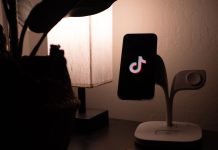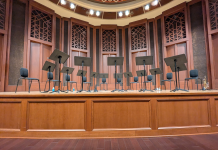Kayla Curtis-Evans
Staff Writer
Midterms can be stressful enough for college students tackling multiple classes at once, as they are usually worth a large portion of the final grade for a class. But taking midterms online for a large portion of a grade — while living through a global pandemic — is unprecedented. In light of the circumstances that have arisen over the past few months due to COVID-19, many students hoped for leniency in regards to class expectations, but have professors met those expectations?
Over the past few months, UC Santa Barbara (UCSB) has converted all classes and academic facilities from in-person to completely remote. The shift from in-person to remote classes has affected learning and students’ abilities to retain information, access academic resources, and receive academic guidance or advising when needed. It can be very difficult to focus in a non-traditional classroom setting, especially with the anxiety that COVID-19 brings.
Furthermore, many students are concerned about having proper access to the Internet or personal computers, as most exams have been moved to an online format through Gauchospace or virtual proctoring platforms such as ProctorU. Worrying about grades — or even worrying about having proper access to education — while also worrying about the health and wellbeing of ourselves and our loved ones takes a huge toll on students both mentally and physically. It is important that all of this is taken into consideration by professors and UCSB faculty.
In regard to lectures and class notes, for the past quarter they have been easily accessible since many professors provide recordings of class content or host live lectures through Zoom. Teaching assistants are usually readily available for any student questions or inquiries through Zoom as well. Professors, faculty, and teaching assistants deserve praise for attempting to make this switch as seamless as possible. But tests bring a whole different set of concerns.
Tests are inherently nerve-racking, and taking a test from your computer introduces more possible stresses in regards to technology; as advanced and nuanced as it is, technology is not always reliable. Some students have taken entire tests only to have Gauchospace glitch and discount all of their work.
Along with that, tests are also a lot easier to take in a structured classroom format. Taking a test at home while your 10 housemates or your family are also doing schoolwork or watching television can be very distracting. Students are expected to perform just as they did when classes were in person, and these expectations are unrealistically high with so much going on in the world during these times. Acing a test at home instead of in a quiet classroom is very difficult, especially when you may only have a small window of time in which you may complete an exam.
The time limits that are given for online tests are another contributor to students’ stress levels. Most midterm exams are lengthy in terms of questions; they usually consist of 40-50 questions or multiple short essays and must be completed in one- or two-hour windows. Changing online tests to a more forgiving format, such as one that grants 24-hour windows to complete an exam, could alleviate students’ anxieties.
Students are dealing with so much more than just schoolwork at this time, and if remote instruction continues, it is only fair that professors should be increasingly lenient. Instructors should consider experimenting with new testing methods that are simpler or that have increased flexibility in regards to time limits, as well as structuring courses to be less rigorous, so as to avoid exacerbating students’ already peaking stress levels.










